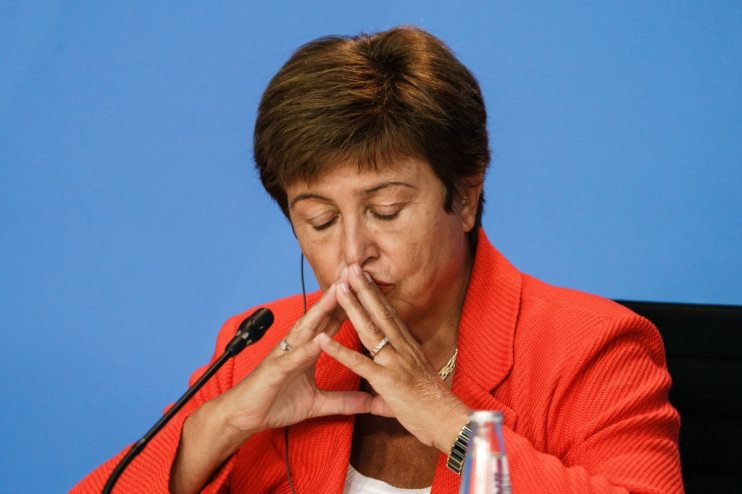IMF: Inflation to surge above central banking elites’ targets

The International Monetary Fund (IMF) expects inflation across the world’s richest countries to surge above the central banking elites’ targets.
In a pre-released chapter from its global economic outlook report, the IMF said inflation in rich countries will hit 3.6 per cent in the final months of this year.
The organisation blamed elevated inflation on rising “housing prices and prolonged input supply shortages in advanced and developing economies.”
The world’s top central banks, the Bank of England, US Federal Reserve and European Central Bank are each mandated to get inflation in line with two per cent.
They have come under increasing pressure for maintaining monetary stimulus measures unleashed to quash the impact of the Covid-19 crisis at a time when rich nations’ economies have roared back from the depths of the pandemic.
Inflation in the UK is currently running at 3.2 per cent, according to the Office for National Statistics, but the BoE expects it to top four per cent.
Meanwhile, prices rose at the fastest pace in 13 years in the Eurozone, climbing 3.4 per cent annually last month. In the US, core inflation, the Fed’s preferred measure, accelerated at its fastest clip in three decades, reaching 3.6 per cent.
The IMF sees inflation normalising to around two per cent by the middle of next year and noted inflation expectations are well-anchored.
The chiefs of the world’s leading central banks recently collectively warned shortages plaguing rich nations and causing inflation to jump are unlikely to end to anytime soon.
Speaking at a conference hosted by the ECB, Andrew Bailey, Christine Lagarde and Jerome Powell all warned price rises will persist until supply chain snarl ups unravel. However, the trio doubled down on their assessment that inflation is transitory.
Since the remarks, UK natural gas prices have hit all-time highs, while oil prices climbed to a seven-year high this week. Energy price increases tend to yield the stickiest form of inflation as these resources are used by almost all businesses.
The IMF highlighted global food prices have soared around 40 per cent since the onset of the pandemic, hitting low income countries hard due to these purchases making a large proportion of consumers’ income.